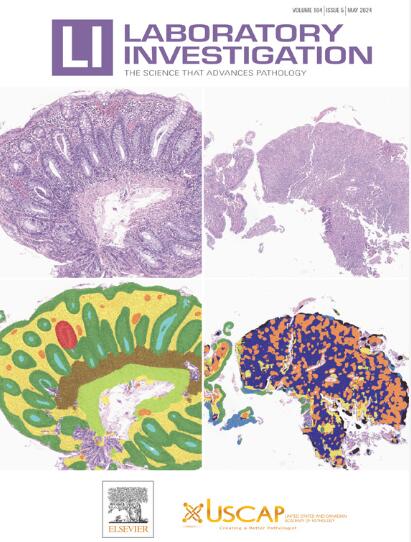A Validation Workflow for Novel Oligonucleotide Sequences to Expand the Multiplexing Capacity of the CO-Detection by indEXing (CODEX) Platform
IF 4.2
2区 医学
Q1 MEDICINE, RESEARCH & EXPERIMENTAL
引用次数: 0
Abstract
Antibody-based multiplexed tissue imaging has the potential to provide critical advances in biological discoveries and their translation for clinical applications. With the increasing introduction of markers and modalities for spatial analysis, there is an according demand for the expansion of multiplexing capacities of such imaging platforms. CO-Detection by indEXing (CODEX) is a widely used multiplexed tissue imaging platform that utilizes DNA-conjugated antibodies for imaging. The multiplexing capacity of CODEX is limited by the availability of unique DNA-oligonucleotide sequences for antibody barcoding. In this study, we demonstrate a workflow for the validation and the introduction of novel sets of candidate DNA-oligonucleotide sequences for CODEX. Through cross-validation multicycle experiments with the already published library of DNA barcodes, we here present a set of 27 novel oligonucleotide sequences for CODEX, increasing the potential multiplexing capacity to 85+ markers. We confirmed the utility of the new barcodes using a 74-plex antibody panel on a multitumor tissue microarray of paraffin-embedded tissues. The workflow presented here provides a reproducible method for extending the plexity of the CODEX platform, facilitating a deeper understanding of tissue microenvironments.
新寡核苷酸序列的验证工作流程,以扩大CODEX平台的多路复用能力。
基于抗体的多路组织成像有可能为生物学发现及其临床应用的转化提供关键进展。随着越来越多地引入空间分析的标记和模式,对这种成像平台的多路复用能力的扩展有相应的需求。CODEX是一种广泛使用的多路组织成像平台,它利用dna偶联抗体进行成像。CODEX的多路复用能力受到用于抗体条形码的独特DNA寡核苷酸序列的可用性的限制。在这项研究中,我们展示了验证和引入新的候选DNA寡核苷酸序列的工作流程。通过与已发表的DNA条形码库的交叉验证多周期实验,我们在这里提出了一组27个新的CODEX寡核苷酸序列,将潜在的多路复用能力提高到85+个标记。我们通过在石蜡包埋组织的多肿瘤组织微阵列上使用74-plex抗体面板证实了新条形码的实用性。本文提出的工作流程为扩展CODEX平台的复杂性提供了一种可重复的方法,促进了对组织微环境的更深入了解。
本文章由计算机程序翻译,如有差异,请以英文原文为准。
求助全文
约1分钟内获得全文
求助全文
来源期刊

Laboratory Investigation
医学-病理学
CiteScore
8.30
自引率
0.00%
发文量
125
审稿时长
2 months
期刊介绍:
Laboratory Investigation is an international journal owned by the United States and Canadian Academy of Pathology. Laboratory Investigation offers prompt publication of high-quality original research in all biomedical disciplines relating to the understanding of human disease and the application of new methods to the diagnosis of disease. Both human and experimental studies are welcome.
 求助内容:
求助内容: 应助结果提醒方式:
应助结果提醒方式:


